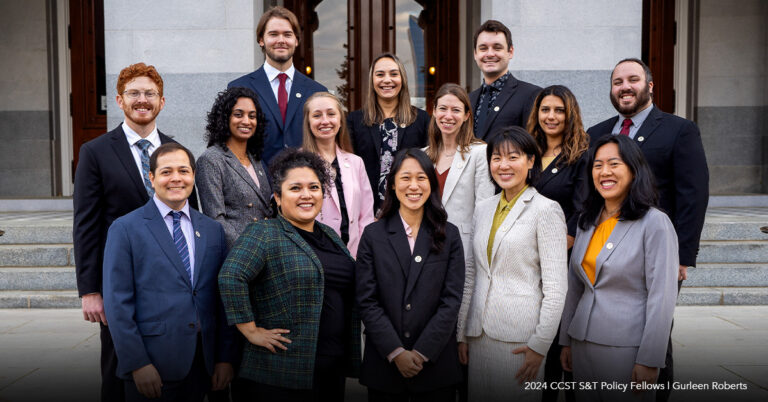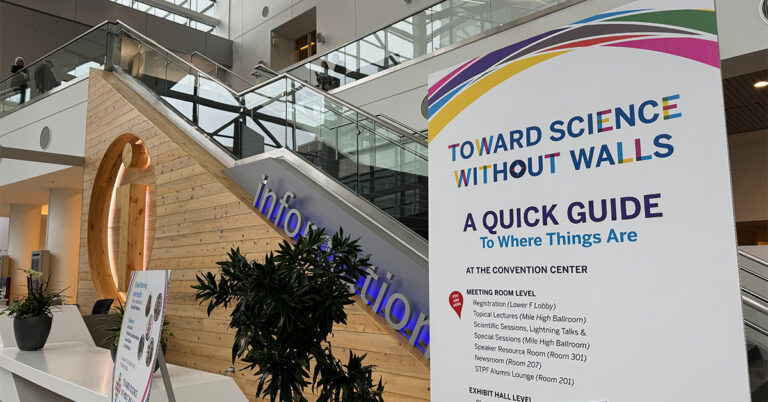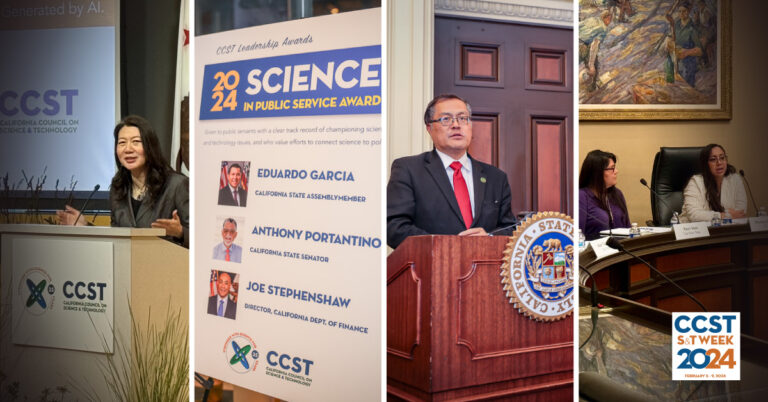Update: Applications for the CCST Science & Technology Policy Fellowship Have Closed
Mobile Technologies Revolutionizing Biomedical Research
February 10, 2012 | CCST Newsroom | Contact: M. Daniel DeCillis

Mobile technologies are likely to have a profound impact on health care and biomedical research, according to Robert Kaplan, Director of the Office of Behavioral and Social Sciences Research (OBSSR) at the NIH and NIH Associate Director for Behavioral and Social Sciences Research.
“This is an emerging trend that’s become apparent across many areas of research,” Kaplan told the CCST Council in his address on February 7. “We’ve come to realize that electronic devices are going to revolutionize clinical care, bringing the laboratory to the people.”
Kaplan was the dinner speaker at the February CCST Council meeting, which focused on the ways in which information technology is impacting or causing social change.
“Researchers have long known that samples taken in lab settings may not be relevant to people’s lives,” said Kaplan. “This is especially true for behavioral research. The problem is that observing people used to be time consuming and difficult. But the ubiquity of mobile devices offers new possibilities for real-time measurements.”

Mobile health, or mHealth, applications may be as simple as prompting people to provide data on a regular basis using their cell phones, rather than document their activities in retrospect.
“For example, a lot of studies on diet and health have traditionally relied on recall – asking participants to remember what they ate over the past week or month and when,” said Kaplan. “Now it’s easy to simply take a picture of each meal with your cellphone, and an app can help assess the actual nutritional content of the meal automatically.”
In addition to apps on users’ cellphones, other possibilities being explored by researchers include wearable chemical sensor units, to provide contextualized and personalized readings on actual exposure to hydrocarbon and acid vapors; wireless sensors to detect stress hormones in real time; and mHealth electrocardiograms, which use an iPhone platform to monitor heart rate and rhythm, sending data continuously to a remote research institute.
“There are many inherent possibilities in leveraging the ubiquity of wireless devices and network coverage,” said Kaplan. “However, the sheer amount of data does pose new challenges.”
Two significant areas that need to be addressed are privacy concerns – which have long been a discussion point in the collection and storage of healthcare related information in electronic form – and the challenge of simply coping with the volume of data being collected.
“Many researchers are used to carrying out studies in clinical settings with participants numbering in the hundreds,” said Kaplan. “Mobile devices will enable researchers to gather much more data from many more participants, doing population scale studies in some cases. We will soon be surrounded by more data than we can store, analyze, and interpret, unless we work diligently to ensure that our research infrastructure is ready to handle that.”
The OBSSR is working to address these issues, with conferences planned this year on systems science, mHealth research, and “big data” visualization.
“We’re excited about the potential of mobile healthcare technology,” said Kaplan. “However, it’s clear that we need systematic research as we move forward, to help ensure that we can maximize this potential – moving from the initial stages of hype to one of continuous productivity that genuinely transforms healthcare research and lifestyle.”






